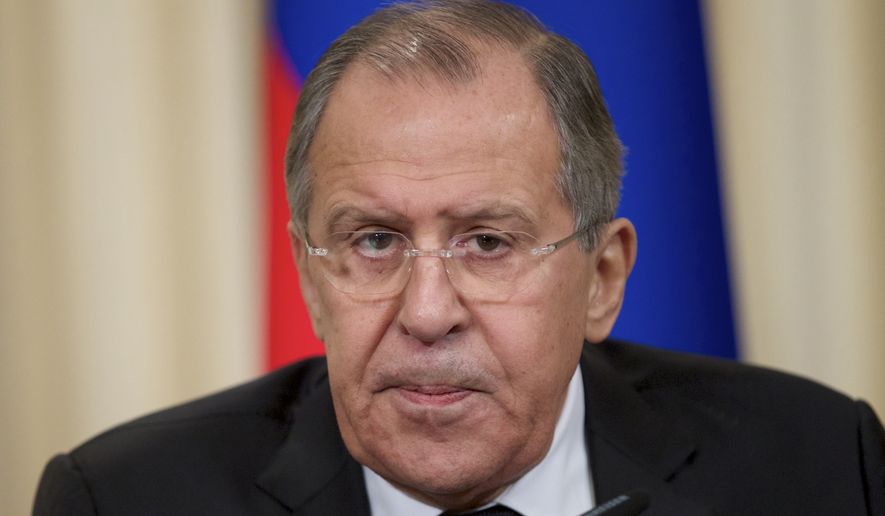MOSCOW (AP) — The Kremlin on Thursday rejected U.S. claims of Russian violations of a landmark nuclear arms treaty, saying it has respected the pact and will continue to do so.
The controversy over the 1987 Intermediate-range Nuclear Forces Treaty adds another thorn in the side for U.S. President Donald Trump’s declared goal of improving ties with Moscow, coming at a time when his administration is facing questions over alleged contacts with Russia during the U.S. election campaign.
Gen. Paul Selva, vice chairman of the U.S. Joint Chiefs of Staff, on Wednesday accused Russia of deploying a land-based cruise missile in violation of “the spirit and intent” of the 1987 Intermediate-range Nuclear Forces Treaty. He said that Moscow’s intention is to threaten U.S. facilities in Europe and the NATO alliance.
President Vladimir Putin’s spokesman Dmitry Peskov responded that “we disagree with and reject any such accusations.”
“Russia has adhered to and will adhere to all its international obligations, including those under the INF Treaty,” he said in a conference call with reporters.
The INF Treaty bans an entire class of weapons — all land-based cruise missiles with a range between 500 and 5,500 kilometers (310 and 3,410 miles).
The Obama administration had accused Moscow of violating the INF treaty, but Selva’s statement marked the first public confirmation of recent news reports that the Russians have deployed the nuclear-capable cruise missile.
During earlier bickering over the INF Treaty, Russia has sought to turn the tables on the U.S. with claims of perceived U.S. violations.
Peskov noted that Russia, unlike the U.S., has neighbors armed with intermediate range missiles, and he emphasized that Moscow nevertheless has continued to abide by its obligations under the treaty.
Trump has said little about the INF treaty, but he has criticized another arms pact, the 2010 New START nuclear arms reduction treaty that limited the U.S. and Russian nuclear arsenals to no more than 1,550 deployed warheads for each country, saying it offers Russia an advantage.
The bickering over the INF treaty comes at a time when Russia-U.S. ties have plunged to their lowest point since the Cold War over the Ukrainian crisis, the war in Syria and other disputes. U.S. allies in Europe have voiced concern about what they perceived as aggressive Russian intentions and its military buildup.
Moscow has responded with its own grievances, saying the U.S.-led missile defense and the deployment of NATO’s forces near Russian borders threaten Russia’s security.
Russian Foreign Minister Sergey Lavrov said after talks in Moscow with his German counterpart Sigmar Gabriel that Russia is only responding to “being encircled with NATO’s weapons and NATO’s units.” Gabriel called for dialogue to ease tensions.
Lavrov also pointed at the WikiLeaks dump of purported U.S. intelligence, noting that it has highlighted the CIA’s reported capability to imitate an electronic trace usually left behind by hackers from other nations.
While Russia has been accused of leaving its “fingerprints” after hacks on the U.S., documents released by WikiLeaks show that “the CIA could get access to such ’fingerprints’ and then use them,” Lavrov said.
The U.S. intelligence agencies have accused Russia of hacking Hillary Clinton’s campaign to help Trump win the U.S. elections.
Lavrov reaffirmed a strong denial of Russia’s involvement in any hacking attacks.
Commenting on the WikiLeaks trove, he added that Russia needs to take the CIA’s hacking capabilities into account. He said he leaves his cellphone behind when conducting sensitive talks.




Please read our comment policy before commenting.